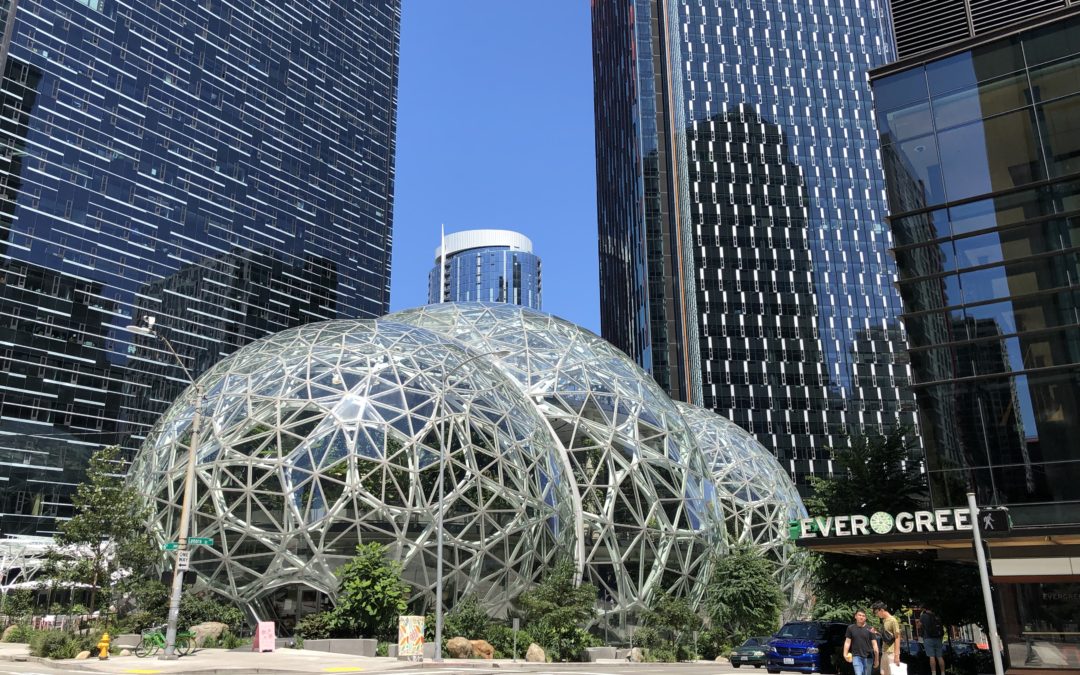Have you been to “The Spheres” in Seattle, Washington? If you have, then you know that they are a series of three, seriously impressive, architectural conservatories that are part of Amazon downtown headquarters campus with over 40 buildings. If not, they are a must see as they are a visually stunning, mathematical, environmental and architectural feat. I had not heard of the three intersecting spherical orbs, but on my recent visit, Seattleites unanimously recommended making tracks to the half-city block where these majestic shapes contain over 40,000 tropical plants from 400 species of plants from all over the world.
But why were they built? They were built as a bold commitment by CEO Jeff Bezos to provide a space for “outside the box” thinking for over 40,000 Amazon staff and who work in the area. Built as a result of “being removed from human elements and immersed in nature” inspires creative thinking, the kind of thinking that will continue to make Amazon a major force in the e-commerce and cloud computing world with net sales for Q1 2019 expected to be $60B. Wow!
As you can see, I am quite intrigued with the success of this organization. I, too, like most others, am deeply impacted by beautiful, inspired surroundings. I don’t think I’m unusual or that this idea is new as many cultures including Japanese and Chinese have for a very long time understood the relationship between space and one’s emotional health. But these spheres have certainly upped Amazon’s brand game. However, I am also a bit of a skeptic too. Does this brand identify reflect what it’s like to work at Amazon?
Fortuitously, I happened to sit beside a young man who works for Amazon while waiting for a major entertainment event in Seattle to begin. As an outsider to Amazon and as someone in HR, I wanted to know what it was like to be on the inside. Of course, I didn’t want to bombard this person on his night out with 1,000 questions so I asked him “is he happy?” He was quite clear; he is happy but he is happy because his boss is awesome. We shared our belief that one’s manager is a major factor to engagement and retention, if not the biggest factor. He said there was certainly the usual fair share of people not happy working at Amazon similar to other companies. He commented on the cyclical nature that occurs in Seattle, that people rotate through the big tech firms, Google, Facebook, Microsoft, Expedia, Porch and SAP. He said that he has been with Amazon for five years and feels he should have the itch to leave given the pattern he has observed among his peers. But he is also aware that life is good where he is so will stay put for now.
I left reflecting on how much things have really changed in our brave new world, that the old adage that people leave bosses, not companies. There is no question that “bling” gets the attention of potential talent and may even cause them to jump ship. They are also worthy investments in this noisy world of what is perceived as fun, cool and so on. But it won’t keep them. The relationship between the manager and employee has not taken a back seat in this brave new world. So some of the old rules still apply.

